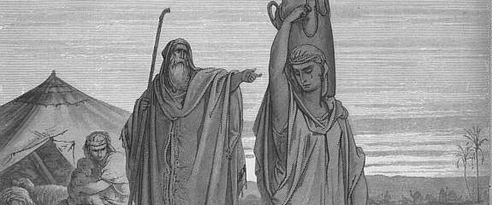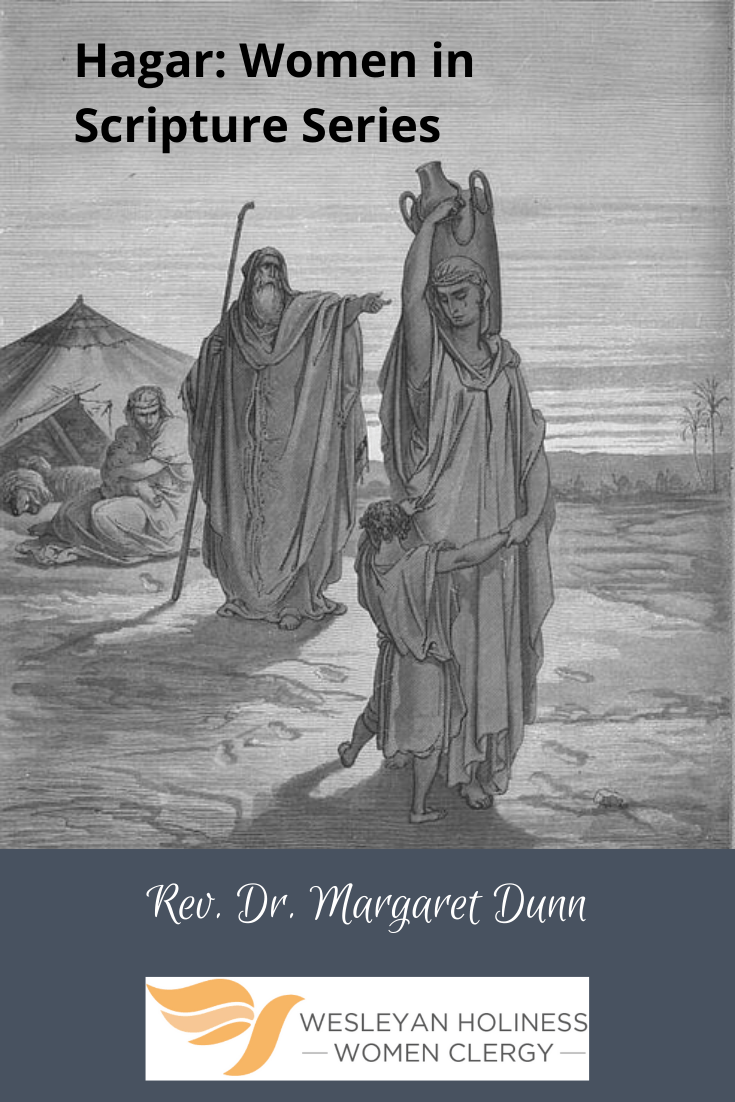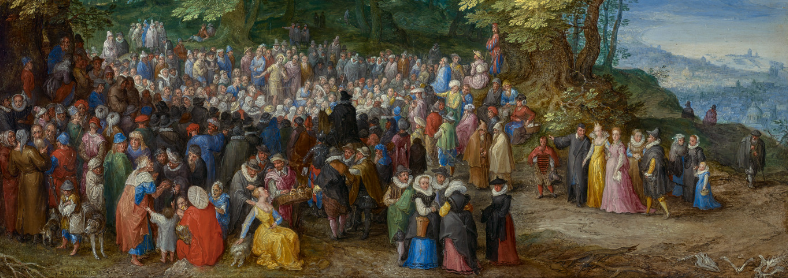Dr. Margaret Dunn is an ordained minister in the Church of God. She is serving at Mid America Christian University as an adjunct instructor and at Parkgate Community Church as a learning hour teacher for 3rd-5th grade students, a prayer partner, and a member of the missions team. She has been a member of leadership teams for the Church of God on the state and national level and was a member of the planning team for the 3rd, 4th, and 5th WHWC conferences. She lives in Pasadena, Texas.
Women of Faith: Hagar
Rev. Dr. Margaret Dunn • May 11, 2022 | WHWC
God Sees Me, God Hears Me, I Am His

Hagar is a largely forgotten Old Testament character; yet we find that she is actually one of only a few people who have ever spoken directly with the LORD. In Hebrew, Hagar means: a stranger, one that fears, or flight. We will see all of those in Hagar’s story which is found in Genesis 16: 1-16 and 21: 8 – 21
Hagar’s Story
Hagar is introduced as Sarai’s Egyptian slave. In this part of her story, Hagar is viewed by Sarai as the way for God to keep His promise to Abram regarding an heir. Sarai never called Hagar by her name, but referred to her as “my slave” (16:2). Abram agreed with Sarai’s plan. They had lived in Canaan for ten years and there was not yet an heir, maybe this is how God wanted to keep his promise to them.
In the account, Sarai took Hagar to Abram to be his wife and she conceived. We do not know if Hagar was consulted about this arrangement but since she was a slave/servant, it is unlikely. Hagar became pregnant and began to despise her mistress (v.4). Sarai became unhappy and asked Abram to deal with it, but Abram told Sarai to do as she wished. Genesis 16:5 reveals that Sarai mistreated Hagar so she fled from her.
In Genesis 16:7, Hagar was in the desert near a spring beside the road to Shur. It was here that the angel of the Lord found her and began to speak to her. The angel addresses her as “Hagar, slave of Sarai”: he called her by name. She answered honestly that she was running away from Sarai and the angel told her to go back and submit to Sarai, and then he gave her some promises: to increase her descendants so much that they could not be counted; and that her son will be born and named Ishmael.
The angel said that the Lord has heard her misery and revealed that her son will be in hostility towards all his brothers (Genesis 16:12). She replied, “You are the God who sees me” and returned to live with Abram and Sarai. Ishmael was born when Abram was 86. Ishmael means “God hears.”
Fast forward fourteen years, and we meet Hagar again. By this time, Isaac had been born as God kept His promise to Abraham and Sarah and changed their names. Sarah was happy and was hosting a party because Isaac had been weaned (Genesis 21:8). Ishmael (now in his teens) laughed, mocked, and made fun of Isaac which caused Sarah to be very upset and she demanded that Abraham send that slave woman away (Genesis 21:10).
Abraham complied, although rather reluctantly, because Ishmael was his son. After hearing God’s promise that Ishmael would become a great nation because he was also Abraham’s son, made it even more difficult for him to send them away, but Hagar and Ishmael left the next morning and soon found themselves in the desert again. They had been abandoned and rejected, but they were not alone. God showed up again, spoke through an angel, called Hagar by name, and provided for her physical needs and gave her a promise of hope for the future.
The last encounter we have with Hagar is in Genesis 21:21 which indicates that Ishmael had grown up, became an archer, and took a wife from Egypt—as they lived in the Desert of Paran.
Lessons Learned from Hagar’s Story
The story of Hagar reminds me of several things which encourage me and give me hope:
I Am Called by Name
First of all, God called her by name. This is in clear contrast to her mistress who did not. Hagar said to God, “You are the God who sees me.” I know that God calls me by name and sees me even when others do not. Since my area of service is not an in front of people ministry, this is particularly encouraging to me. When others do not recognize me, God does: God sees me. God sees you and calls you by name too.
My Identity is Found in My Relationship with God
When we meet Hagar she is the servant/slave of Sarai. She had not been looked after by Pharaoh, not looked after by Sarai, and not looked after by Abram. Slave/servant is the role she has and she does not know who might abandon her next. She had been given up, discarded by those who were supposed to care for her. When she ran away, she did not know where she was going. She had a past but not a future.
GOD FOUND HER. When God spoke to her, He knew her past, and regardless of that, He gave her a hope for the future. Her life was transformed from a life of suffering to a life of hope. Hagar is one of only a few people who spoke directly with the LORD. The speaking was to her: a woman and a slave, not a man.
When Hagar returned to Abram and Sarai, she had been given an identity and hope. She also had an encounter with God to remember and a son who testified to God’s work in her life: she was not in a situation where her value and worth were recognized, but after her encounter with God she felt both valued and worthy.
Our identity is in Christ: He knows our past, our present, and our future. When we feel worthless or undervalued, we can find our value in our relationship with Christ. We also know that our identity is in Christ as a daughter of the King of Kings and Lord of Lords. We may not know the future, but we can be confident that He knows. What a tremendous lesson to learn from the life of Hagar.
God Addresses Basic Needs
In the second encounter with the angel of the Lord, Hagar’s basic needs of water and food are met. She was sent with some food and water but it ran out and when God found her she was crying under a bush because she could not bear to watch her son die. God heard Ishmael crying and called to Hagar, and found her at a low point in her life. He immediately gave her water and a promise.
God meets me at my points of great need and takes care of physical, emotional, and spiritual needs. I know that sometimes I need food or water or rest before I can address the other issues that need addressing in my life.
God’s Plan is Best
The story of Hagar reminds us that God is in control and when we try to take control of the situation, bad things happen. Sarah decided to use Hagar as a surrogate and then regretted her choice, which led to Hagar’s flight, return, and second flight. The story of Hagar teaches us that God does care for us: He heals our broken hearts, gives us an identity and a hope but also, God’s promises are true and He will keep them.
God Cares for the Broken Hearted and Suffering
The story of Hagar reminds me that God cares for those who are broken, hurting, and suffering. He cares for those who have been abandoned or left to fend for themselves. He cares for those who are poor, imprisoned, blind, and oppressed (Luke 4:18-19). This story reminds me that I should care for them as well.
Conclusion
Our calling is to live out the love of God to those in the world. God calls us to be in Him for those around us. In her story, Hagar goes from fear to hope, from flight to a home, and from not being seen to being seen and heard.
Our calling is to be agents of God as we help those around us make this journey. The story of Hagar reminds me that my value and worth are in my relationship with Jesus Christ: I am His and I belong to Him. The good news is that you are also His and you belong to Him.
Resources
https://activated.org/en/foundations/the-word-of-god/bible-stories/what-hagar-taught-me/
https://unlockingthebible.org/2019/07/three-glimpses-gods-love-seen-hagar-life/
https://rosevinecottagegirls.com/when-you-find-yourself-in-the-desert/
Elizabeth Tracy, "Hagar: She Who Speaks with God", n.p. [cited 8 Nov 2021]. Online: https://www.bibleodyssey.org:443/en/people/related-articles/hagar-she-who-speaks-with-god

Enjoyed this article? Connect with us on one of our social media platforms. Share it and forward it to a friend:




